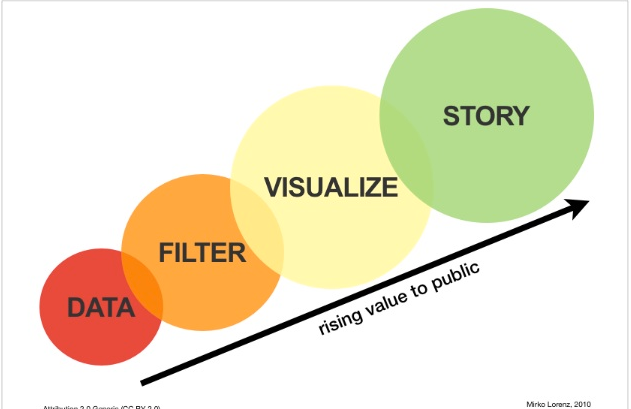Buried near the end of this fairly standard but still pretty interesting piece on how software giant SAP is deploying Human Capital workforce analytics solutions in their internal organization from their recently acquired SuccessFactors product suite is perhaps one of the most clear, coherent, and instructive observations about the goals (or what should be the goals), of any HR organization embarking on an analytics or (buzz work blog police look the other way) 'Big Data' project.
Here's the quote from SAP's Helen Poitevin:
We see this (the implementation of modern workforce analytics solutions) as a transformation for us first, moving from being specialists in extracting data from our systems, to being specialists in answering workforce related business questions.
I know that this seems like a kind of overly simple and somewhat of an obvious point of emphasis, but I think it is one that serves to remind those of us that like to talk, read, or prognosticate about how Big Data will have a truly transformative impact on HR professionals, workforce planning, and human capital management need to remain mindful that collecting more data, and even making the extraction and presentation of that data simpler and even more beautiful, is only the first step in the journey to realizing better business outcomes.
The goal of these analytics and Big Data projects, as the SAP article makes plain, is not just the ability to organize, describe, extract, and present workforce data (which in truth are necessary and important steps), but to leverage that data, to have the data lead to the asking of the right questions, to illuminate a path towards answering these questions, and to help the organization understand and relate the story that their human capital data wants to tell.
Again, the SAP piece makes it clear what their goals are, and what has to be the end-state for HR analytics and data projects:
(the analytics projects) represents a transformation for our business, by virtue of leveraging data-based insights and analysis about our workforce to make better, more sustainable decisions
Again, you probably already know this. Probably.
But it is a telling reminder just in case you've let your goals slip a little, or if you want to (or feel like you have to) claim victory with the initial successes in your analytics programs. 'Look we have reports!'
You're not really there, (and hardly anyone is yet), until the workforce data becomes an essential part of how your business makes decisions, and is not just a set of cool dashboards or a slick set of charts on an iPad app.
Have a great week all!